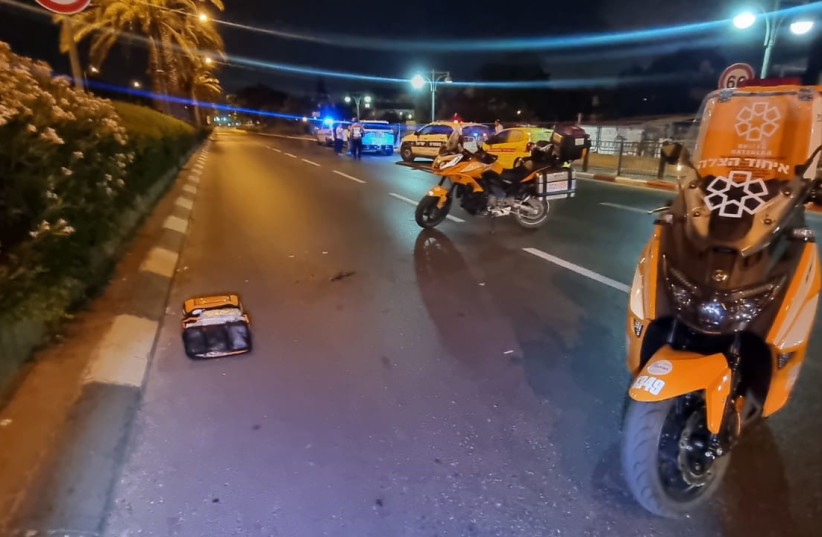As Israel was congratulating itself for the successful Operation Breaking Dawn last week that eliminated the top members of the Palestinian Islamic Jihad terrorist movement in Gaza without a single direct Israeli fatality, there were nonetheless lives being lost.
In a series of horrific road accidents across Israel, 19 people were killed in one week. More than 225 people have been killed since the start of the year, and many more were injured, some seriously. And never underestimate what both loss and dealing with injuries does to the families. A serious road accident will have an impact on people’s lives years and decades after the incident.
Every one of the deaths is a tragedy, a world in its own right, and every family is devastated by their loss.
Among those killed this week was a 14-year-old girl crossing the road, and a driver who lost control of his vehicle. The small southern town of Ofakim buried five dead within hours, the result of two particularly appalling accidents: two men were struck by a vehicle and killed when they crossed the road to help the victims of a road accident they witnessed, and a pregnant woman and her two young daughters were killed in the shocking accident in Jerusalem in which a bus mounted the sidewalk. The circumstances are being investigated, and it is not clear whether it was the result of a technical failure, or a failure on the part of the driver to put on the hand brakes when he pulled over to sort out a problem with the luggage compartment.
There’s a reason that those working in the field refer to the accidents in terms of “terrorism on the roads.” More Israelis have been killed on the roads than in war or terrorist attacks.

The factors vary.
In some cases, particularly on the southern stretch of Route 90, infrastructure is often to blame – the narrow lanes, lack of hard shoulders, and above all the lack of road dividers. If you see someone racing, report them; if you’re a passenger in a car going too fast, you should tell the driver to slow down; if you’re a driver in a hurry, remember: it is better to arrive late than never arrive at all.
Lack of patience comes with a heavy price, especially when cars and motorbikes swerve from lane to lane trying to get ahead.
Many accidents are caused by human error. Others are caused by human failing, such as being distracted or falling asleep at the wheel. Truck drivers and bus drivers must be given adequate rests; private drivers must make sure they are not tired when they sit behind the steering wheel.
A cellphone can be a driver’s friend – or enemy. Waze will only help you reach your destination if you keep your eyes on the road. A road-safety campaign a couple of years ago featured bosses of big companies telling their employees not to text and not to answer text messages while driving. “If it’s important, I’ll call,” was the motto.
There should be more road safety lessons in schools, and the level of instruction of those learning to drive must be raised. In some cases, improvement to the infrastructure and more warning signs would help. There also needs to be more enforcement of existing laws and greater deterrence, but ultimately, the knowledge that every time you get behind the driver’s wheel you could kill or be killed should be its own deterrence.
Israel is a powerhouse in technology for vehicles – think of Waze and Mobileye that already save lives by warning of possible collisions – but technology alone is not the answer.
The state is responsible for education, enforcement and infrastructure, but every single individual – driver, passenger or pedestrian – must play their part. Everyone, every time, must think twice, be aware, and be smart. This past Shabbat we read in the Torah portion Ve’ethchanan the commandment: “Be very careful about your lives” (Deut. 4:15).
That is as true on the roads as in any other aspect of life.
